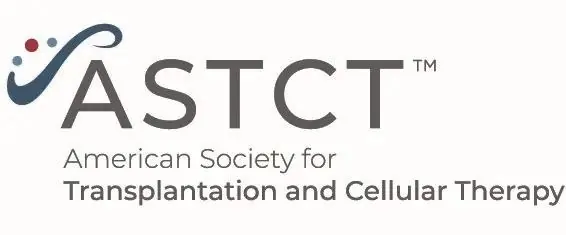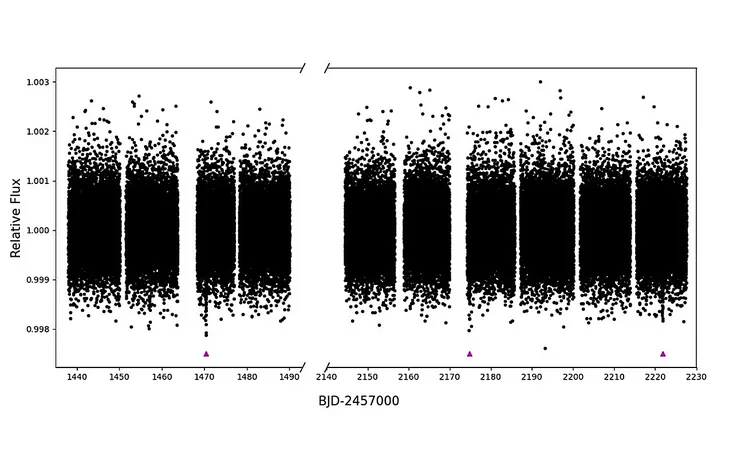
Unlocking the Secrets to Boosting CAR-T Therapy: New Insights from Czech Researchers
2025-04-24
Author: Mei
How T Cell Characteristics Shape CAR-T Therapy Success
A groundbreaking study from researchers at University Hospital Ostrava and the Faculty of Medicine at the University of Ostrava in the Czech Republic has shed light on the crucial role that intrinsic T cell characteristics play in the effectiveness of CAR-T cell therapy for blood cancers.
While CAR-T therapy is heralded as a game-changer in cancer treatment, it faces a daunting challenge: high relapse rates, particularly exceeding 50% in certain B-cell malignancies. This comprehensive review highlights several key factors linked to T cells—such as exhaustion, memory differentiation, senescence, and regulatory elements—that significantly impact CAR-T efficacy.
The Challenge of Relapses in CAR-T Treatments
The motivation behind this research stems from the inconsistent long-term remissions observed in patients receiving CD19-directed CAR-T therapies for lymphomas, leukemias, and multiple myeloma. T-cell dysfunction, resulting from previous chemotherapy treatments, aging, or intrinsic immune weaknesses, is believed to severely limit the therapy's effectiveness. For instance, exhausted and senescent T cells often have diminished proliferation and tumor-fighting abilities, while highly differentiated T cells can decline swiftly after infusion.
The Ideal T Cell Profile for CAR-T Success
In contrast, early memory T cells, known as TSCM and TCM, exhibit enhanced longevity and expansion potential, marking them as ideal candidates for CAR-T cell manufacturing. Additionally, metabolic restrictions and an imbalanced T cell receptor (TCR) repertoire can impair immune responses, indicating the need for personalized approaches in selecting and engineering CAR-T cells.
Actionable Insights for Enhanced Outcomes
The findings of this study propose several strategies to amplify CAR-T effectiveness. Measures such as reducing T cell exhaustion through PD-1 blockade and CRISPR editing, alongside short ex vivo expansion times, can enhance T cell fitness. A higher proportion of memory T cells correlates with improved response rates, underscoring their importance.
Moreover, modulating T cell metabolism—particularly by influencing oxidative phosphorylation and glycolysis—shows potential benefits, as does mitigating the immunosuppressive effects of regulatory T cells (TREG). Interestingly, TCR diversity emerged as a prospective biomarker for predicting patient responses, opening the door for more tailored treatment plans.
Towards a Future of Improved CAR-T Therapy
In conclusion, the study suggests that refining CAR-T cell selection and leveraging multi-omics profiling in conjunction with genetic and metabolic modifications could dramatically enhance outcomes for patients grappling with aggressive hematological malignancies. This research paves the way for more effective, personalized CAR-T therapies, potentially saving countless lives in the fight against cancer.



 Brasil (PT)
Brasil (PT)
 Canada (EN)
Canada (EN)
 Chile (ES)
Chile (ES)
 Česko (CS)
Česko (CS)
 대한민국 (KO)
대한민국 (KO)
 España (ES)
España (ES)
 France (FR)
France (FR)
 Hong Kong (EN)
Hong Kong (EN)
 Italia (IT)
Italia (IT)
 日本 (JA)
日本 (JA)
 Magyarország (HU)
Magyarország (HU)
 Norge (NO)
Norge (NO)
 Polska (PL)
Polska (PL)
 Schweiz (DE)
Schweiz (DE)
 Singapore (EN)
Singapore (EN)
 Sverige (SV)
Sverige (SV)
 Suomi (FI)
Suomi (FI)
 Türkiye (TR)
Türkiye (TR)
 الإمارات العربية المتحدة (AR)
الإمارات العربية المتحدة (AR)